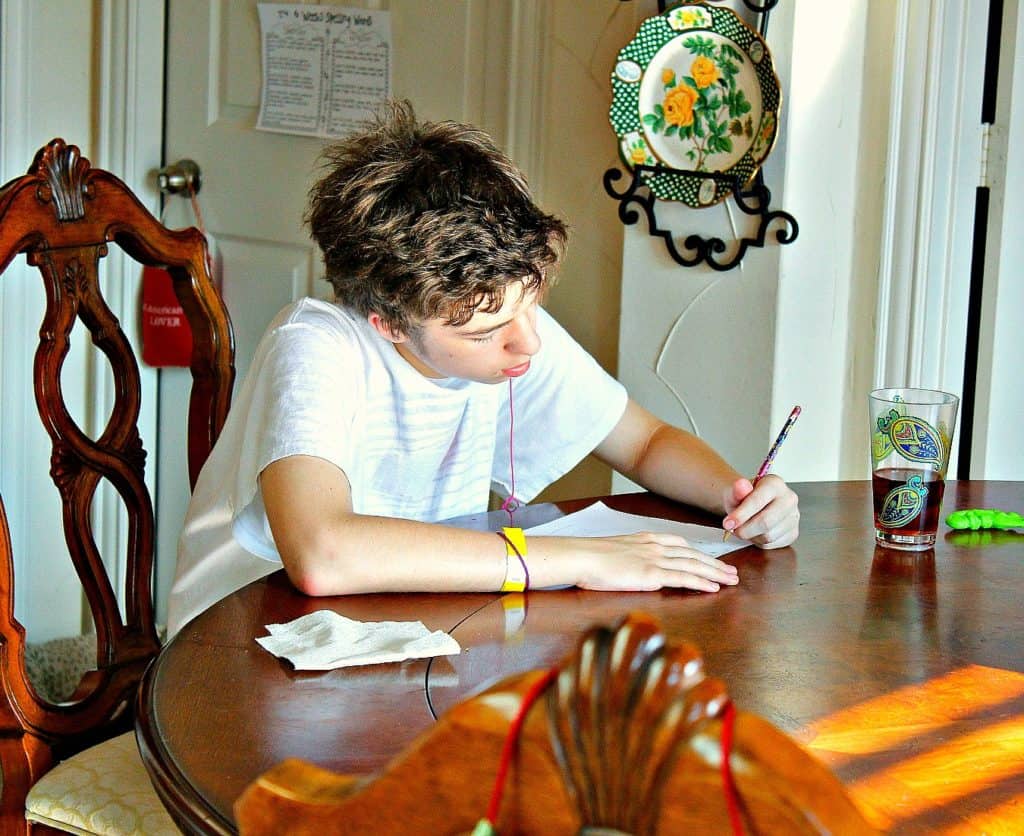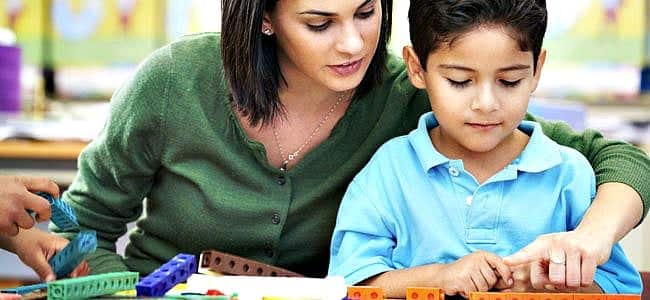
There may be affiliate links in this article. You can read more about this in my disclosure.
Homework Survival – Part 1
With the start of the school year, many of us faced the start of homework for kids. While our children may not be the biggest fans of the practice, it’s something we simply can’t avoid. Over the next few days, I will be going over some of the best ways to manage homework in your own families! Each new school year brings new challenges of their own variety. Whether that be a less-motivated child, a teacher with a different teaching style, or simply more complex and difficult classes. The child who easily did their homework on the bus ride home from 4th grade — and got straight As — may be mortified that they have to spend their free time doing 5th grade homework.
These tips, broken into various categories, will discuss the different steps that lead to success with homework. As our children get older, work loads become heavier and heavier. Starting great habits and expressing the importance of homework from a young age is a great stepping stone!
Related: Back to School is Stress-Free with These Must-See Tips
Homework Organization

As you likely know, kids aren’t usually born being super organized. While school does a great job of teaching kids responsibility and organization, it’s important that they translate these lessons to their life at home as well. Keeping school work organized and easily accessible is one of the most important steps in building a stress-free and successful homework experience.
Homework Supplies
While in the classroom, children often have desks, cubbies, or lockers, depending on their age. At home, things can have a tendency to be in a multitude of places and if children don’t have an actual desk area in the home, it’s important to have a space for their homework supplies! From pens or pencils to paper, notebooks, calculators, crayons, or anything else they may need. When our children sit down to do their school work and have everything they need readily available, there is less distraction and more of a learning-ready environment.
A great tip I use is to keep folders at home for each different subject in school. This way, when helpful papers or assignments are sent home, they can live in these folders for reference during homework or studying. This is a great way to show the kids that they have done that difficult math before, and they can review their past work. Getting your child involved in this organization process is a great way to help bolster their sense of independence and their inclination to stay organized!
Related: Six Easy and Creative School Lunches
Make Homework for Kids Fun & Stress-Free
Except for Kindergartners or extremely enthusiastic kiddos, homework and fun aren’t typically words used in the same sentence. As parents, we can greatly reduce the angst and stress that comes along with homework by just using a small amount of creativity and planning. When children don’t dread homework in the same way they did previously, it is much more likely they will successfully complete and possibly even enjoy homework assignments.
A Homework Place

One of the most important pieces of a child’s continued education at home is having a quiet and clear spot to do homework. It is important that our children know that there is a time for fun and play and a time for studying and homework. By having a specific spot in the home for this, they are able to focus on their task at hand, rather than any distractions around them.
If your child has a desk in their own room, make sure it is cleared of any toys, hobbies, or other distractions. Keep all needed supplies on hand within the desk and make sure the area is well-lit and quiet. If your child shares a room with another child, maybe only one should be in the room at homework time or maybe an entirely different spot is best for homework.
Related: Declutter Your Way to a Calmer Household
Use the Kitchen Table
After I pick my son up from school each day, I typically start dinner right away. Since this involves me being in the kitchen for a period of time, it’s a great opportunity for him to sit at the kitchen table with homework. There is no one else in the room (I hate people under my feet when I am cooking!) and he knows that I am nearby if he has any questions or needs help on something. Since the kitchen isn’t a spot that we have a television and there usually aren’t any toys or other distractions lying around, this is a great spot to let him focus and complete his assignments.
When the homework for the day is to study for an upcoming quiz or test, I find that interaction is much more helpful, especially at a younger age, than simply reading over notes. Riding in the car is a great opportunity to quiz your kid on their spelling words, math facts, or science questions! Again, there aren’t many distractions to keep your kiddos otherwise occupied so using these times to work on homework that doesn’t require a desk is great! We also like to go over spelling words and simple math problems while grocery shopping or browsing through store aisles. Young kids can get a bit bored and misbehave in stores. This is a way I keep his brain engaged and thinking while I complete a mundane task!
Homework Things
Having things that are designated for homework only gives a certain bit of excitement to these items. Whether this be specific supplies or accessories, they are much more fun and special when they aren’t something that can be accessed regularly!
- A special shaped pillow for studying or a beanbag chair that is only allowed to be used for homework and reading can be a great incentive.
- Fun card stock and a special set of pens or markers can be kept for making flash cards for studying sight words or math facts. These wouldn’t be available to be used for regular use!
- Try using a kitchen timer when your child is doing their spelling words or math facts. If these are easy problems that they are familiar with, it can add some fun to the homework to let them race against the clock to complete a set of words or math problems. Simply call out words for them to spell on their paper or math facts for them to fill in answers to.
- Many elementary schools offer various reading incentives, since this is such an important skill in the first few years. If your child’s school doesn’t offer any specific rewards or incentives, try giving your child some of your own! Maybe tell them once they have completed 20 books they get a special dinner out with mom and dad. Or, after 100 books have been read, they get to have a friend over on the weekend! Bribery is never something I encourage but when kids are still very young and grades might not be as meaningful yet, providing other incentives can be a great way to get them reading!
- Creating study guides that work for your child’s personality can be extremely helpful in their success as well. If you have a kid who loves word searches or crossword puzzles, these can easily be made into fantastic studying tools! If your child is a bit older, they can even make their own crossword puzzles to complete!

Making homework more fun and exciting can help to avoid the dread that is so often associated with it. When my son first brought home Kindergarten homework last year, I was terrified by the fact that he already dreaded completing it! With just a little bit of imagination and creativity, we created a system that worked well for making homework a great experience in our house. Doing this from the beginning will help us keep up these habits as he transitions from elementary to middle and high school!




